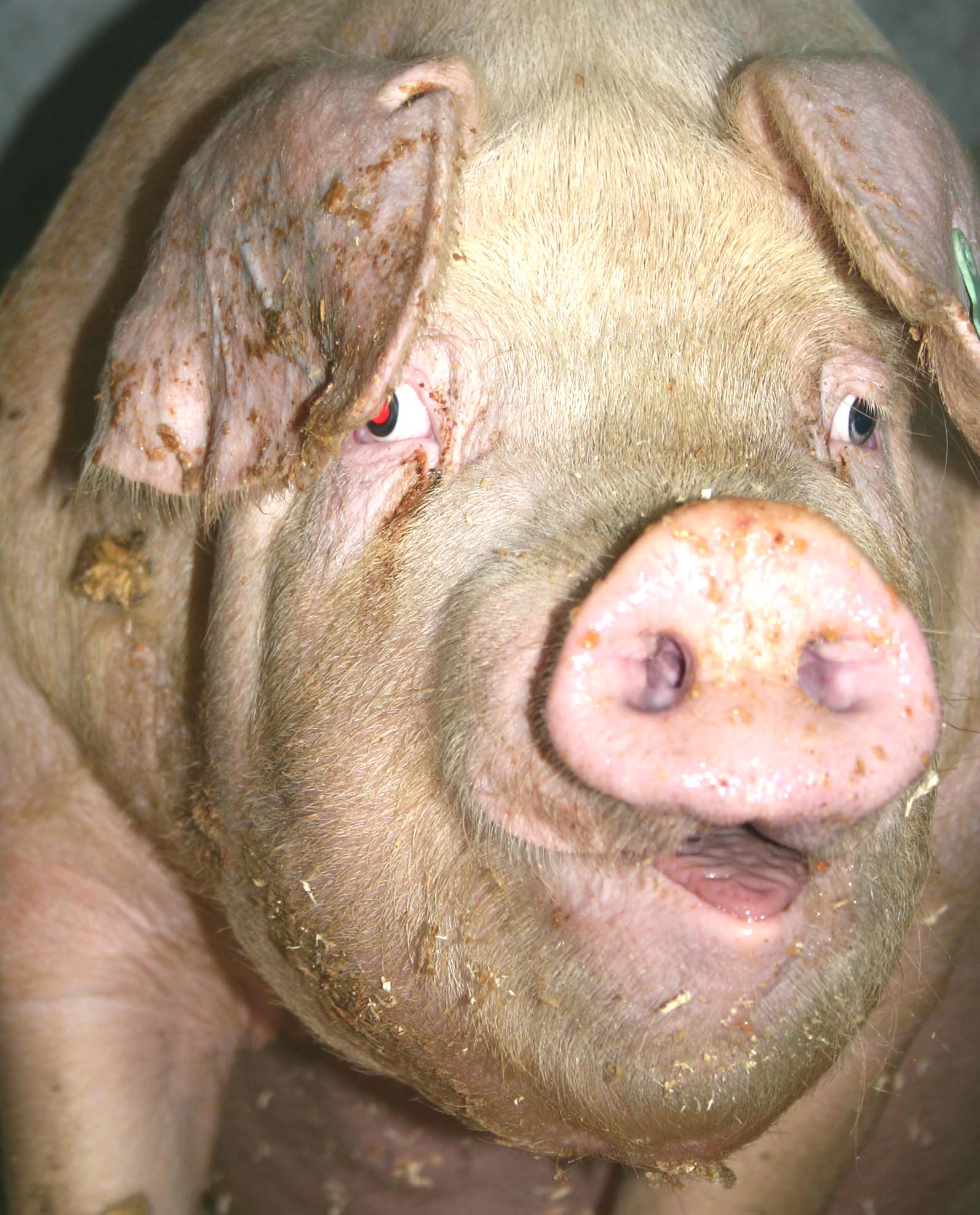Pigs as models to help prevent obesity problems
With the aid of a grant to the tune of 17.5 million DKK from Innovation Fund Denmark, scientists will be developing healthy foods that can prevent obesity-related diseases and promote public health. Pigs will be used for parts of the project as models for humans.

It has become common knowledge that an expanding waistline due to an unhealthy diet and lack of exercise can lead to a number of life-threatening diseases. An unhealthy lifestyle increases the risk of obesity, cardiovascular disease and type 2 diabetes. Innovation Fund Denmark is investing 17.5 million Danish kroner in a new research project that will explore how a diet rich in protein and fibre can form part of the fight against obesity-related diseases and help to improve public health.
Modern man is poorly adapted to a diet with too little fibre and too much fat and sugar. The energy-dense diet increases the risk of high blood pressure, too much fat around the middle, abnormally high levels of blood lipids and insulin resistance.
These are dangerous conditions that are part of the so-called metabolic syndrome. Metabolic syndrome doubles the risk of cardiovascular disease and five-fold increases the risk of type 2 diabetes. The problem is escalating at an alarming rate.
- In the western world, 20-25 percent of the adult population suffers metabolic syndrome and in almost half of the OECD countries 50 percent or more of the population is overweight. One of the reasons is that we eat too much unhealthy food, says Professor Knud Erik Bach Knudsen, from the Department of Animal Science at Aarhus University who will be leading the project over the next four years.
The project is undertaken jointly with Aarhus University Hospital, Rigshospitalet, University of California - Davis, Norwegian University of Life Science, Arla Food Ingredients, Lantmännen and DuPont. One of the goals is to develop healthy foods that can prevent the development of obesity-related disorders in humans.
The protein used in the studies will be from either whey or vegetable protein while the fibres will come from food products such as cereal grains, which are rich in arabinoxylan. The scientists will characterise the protein and fibre sources and on the basis of results from these trials they will design diets that can prevent metabolic syndrome.
Pigs used as models
The studies will partly be tested on people who are healthy, diabetic or have metabolic syndrome, and partly on pigs that have metabolic abnormalities. An aspect of the project is aimed at developing a model pig that has metabolic abnormalities corresponding to those in people with metabolic syndrome.
- We will develop a pig model that allows us to use invasive methods to study the impact of obesity at the molecular level. These are studies that can’t be performed on humans. But we’ll be able to transfer the results to humans, since the physiology of pigs and humans is very similar, explains Knud Erik Bach Knudsen.
Healthy snacks and meals
A better understanding of how the body reacts to fibre and protein can pave the way for the development by the companies in the project of dairy or cereal-based products with beneficial effects on metabolic syndrome, or a protein snack that can be eaten before a meal with a beneficial effect on appetite and blood lipid levels following the meal.
- The results of the project can also be used to promote public health via health policies, dietary guidelines and the development of new healthy food concepts, says Knud Erik Bach Knudsen.
The four-year project has a total budget of 23 million DKK. The grant from Innovation Fund Denmark amounts to 17.5 million DKK.
For further information please contact: Professor Knud Erik Bach Knudsen, Department of Animal Science, email: knuderik.bachknudsen@anis.au.dk, telephone: +45 8715 8063, mobile: +45 2064 7598
?
